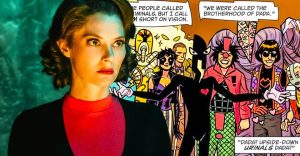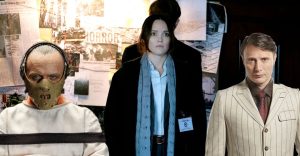Why Orcs Can’t Go In The Sun In The Rings Of Power

Warning! SPOILERS for The Lord of the Rings: The Rings of Power episode 3.The Lord of the Rings: The Rings of Power‘s third episode showcases the Orcs’ hatred of the sun. Throughout the entirety of Tolkien’s Legendarium, the Orcs have been the foot soldiers of evil, starting with Morgoth and ending with Sauron. Violent and sadistic by nature, Orcs abhor all that is good in the world, taking pleasure in torturing and killing their enemies and even each other. The Lord of the Rings: The Rings of Power provides another adaptation of Tolkien’s most detested monsters, as they tunnel their way through the Southlands, pillaging and burning peaceful settlements as they go.
Tolkien’s writings are unclear about the exact origin of the Orcs, as he revised his vision several times. Generally, there are at least two schools of thought: they may have been born from rocks and slime (as is depicted in Peter Jackson’s film adaptation of The Lord of the Rings when Saruman creates the Uruk-hai), or they were either corrupted Elves or corrupted Men. In every case, Morgoth, Middle-earth’s first and worst true evil, was involved in their creation, imbuing them with his wickedness and pain.
The reason the Orcs detest the sunlight so much is down to the time and place of their creation. Morgoth bred the Orcs at a time when Middle-earth was still shrouded in darkness, the light of the Two Trees of Valinor unable to reach the furthest corners of the world. As such, the Orcs were literally born in the dark, fighting and thriving in the black of night. When the sun rose over Middle-earth for the first time years after their initial creation, the light traumatized the Orcs, burning and blinding them after so many years shrouded in darkness. Though Orcs can wander about in daylight, as is written both in Tolkien’s books and seen in plenty of The Lord of the Rings adaptations, their preference for darkness remains with them, both a result of their first breeding and the will of their original master.
How The Rings Of Power’s Orcs Compare To Lord Of The Rings
The Orcs in The Rings of Power seem to have a more prominent distaste for the sunlight than those in The Lord of the Rings. In The Rings of Power‘s third episode, they are almost burned when in direct contact with sunlight, shielding themselves with cloaks and hoods and a makeshift roof they’ve built over the entrance to their tunnel system. Captured Elves Arondir and Revion try to use the sunlight to their advantage in an attempt to escape their imprisonment, though their efforts are ultimately unsuccessful.
In The Lord of the Rings, however, both in Peter Jackson’s adaptations and in Tolkien’s writing, the Orcs seem to fare better in the light than their counterparts in The Rings of Power; Saruman’s Uruk-hai especially, who chase The Fellowship in broad daylight down the coast of the Anduin River. During the siege of Osgiliath, the Orcs in The Lord of the Rings also operate in the daytime, though due to Osgiliath’s proximity to Mordor, the sun is blocked behind a veil of clouds and pollution. Sauron’s forces used this to their advantage in their attacks against Gondor, though Gandalf was able to drive some of Sauron’s dark creatures back, namely the Nazgûl and their Fellbeasts, by summoning pure light with his Wizard’s staff.
It should be noted that Orcs, and other dark creatures devised by Morgoth, do not detest all sources of light. In every version of Tolkien’s Legendarium, Orcs are seen wielding fire as both weaponry and as torches to see by. It seems that it is only the pure light of the sun, reminiscent of the light of Valinor that Morgoth detested so much, that truly harms or incapacitates them. Though the Orcs’ distaste for sunlight is far more prominent in The Lord of the Rings: The Rings of Power than in any other Middle-earth adaptation so far, this plot device undoubtedly has its origins in Tolkien’s Legendarium.
New episodes ofThe Lord of the Rings: The Rings of Power air Thursdays on Amazon Prime.


















